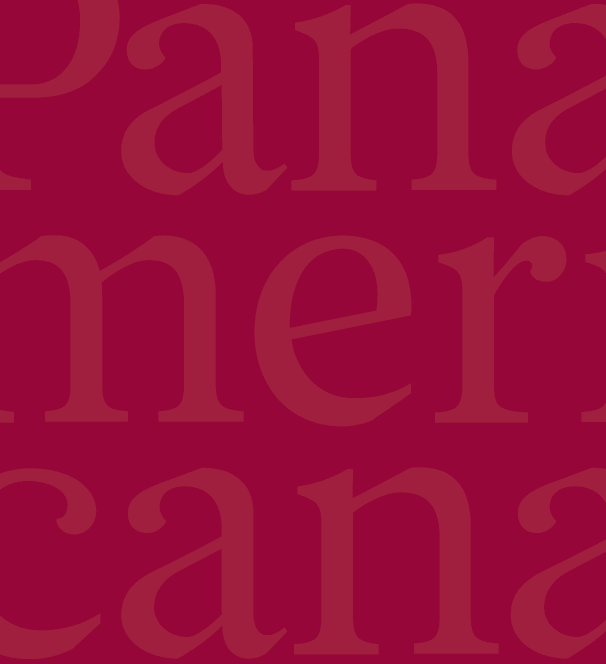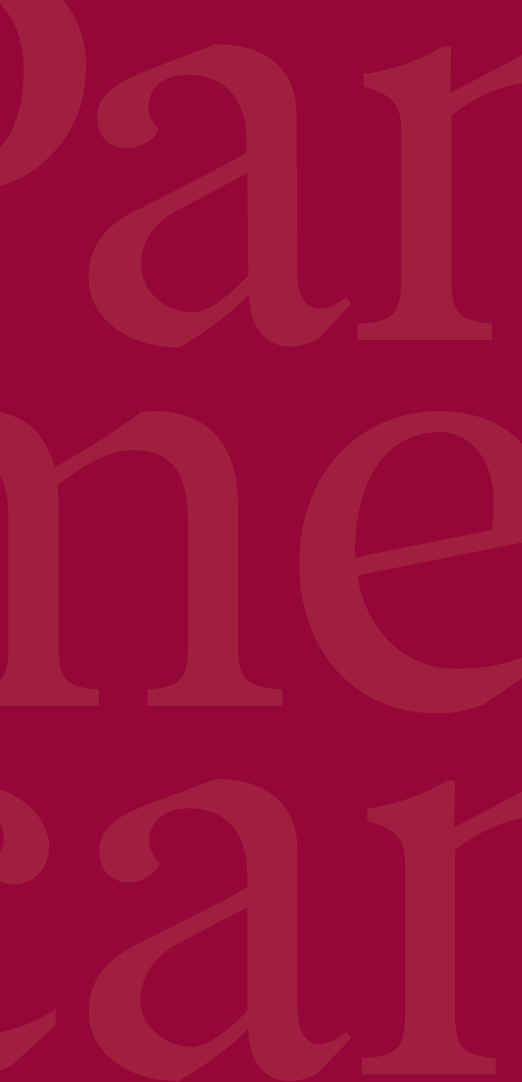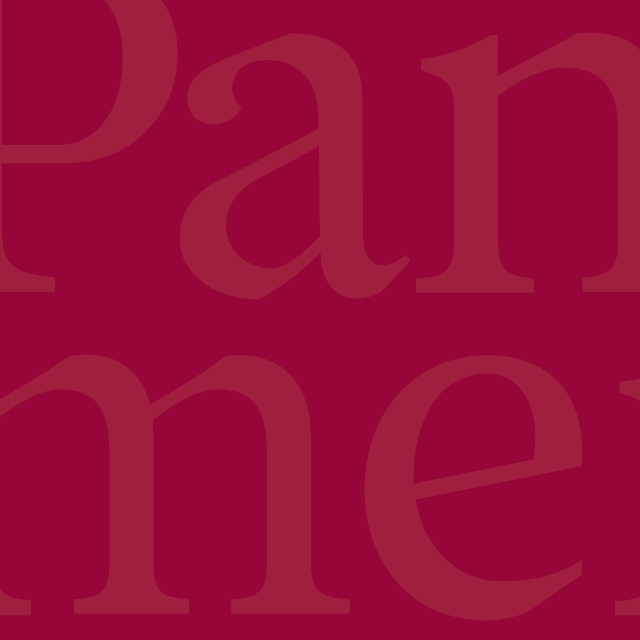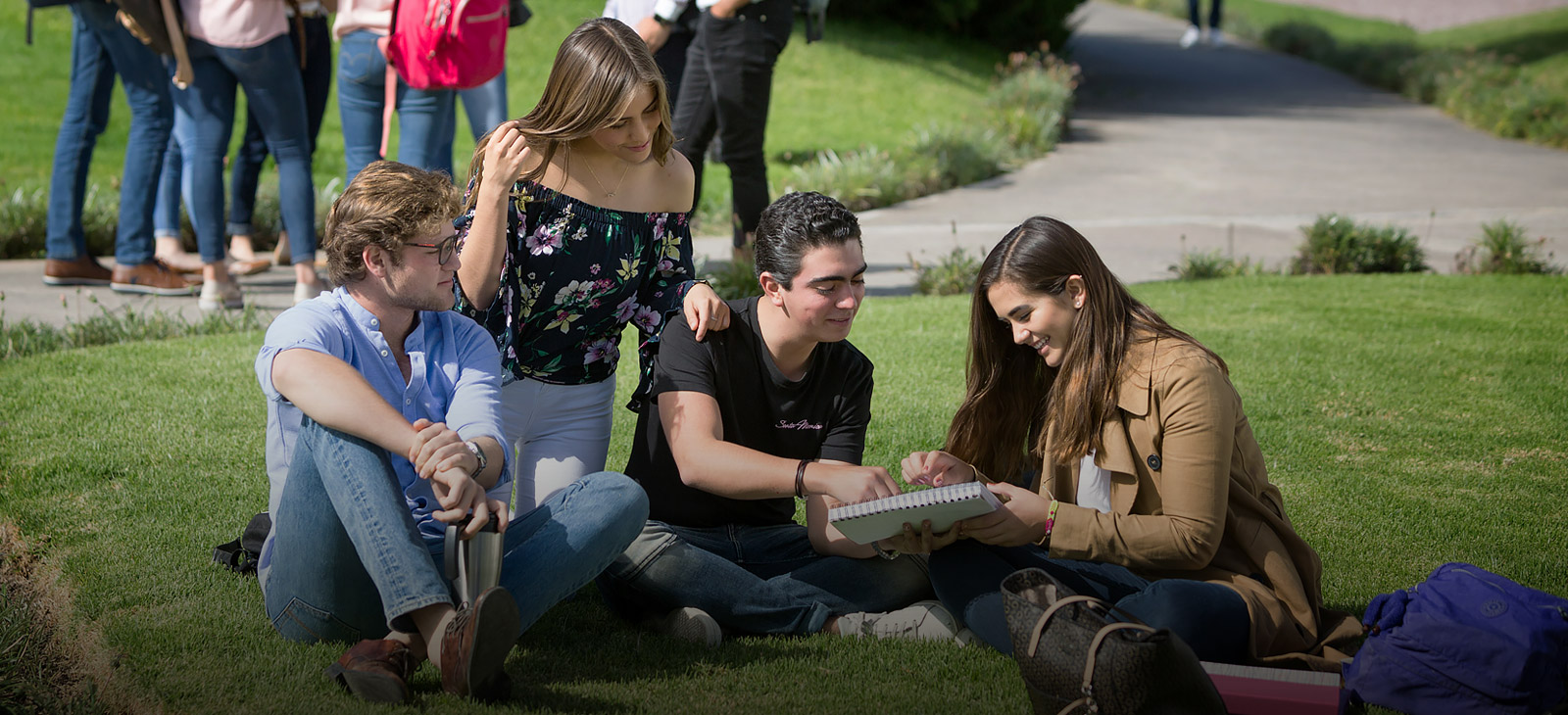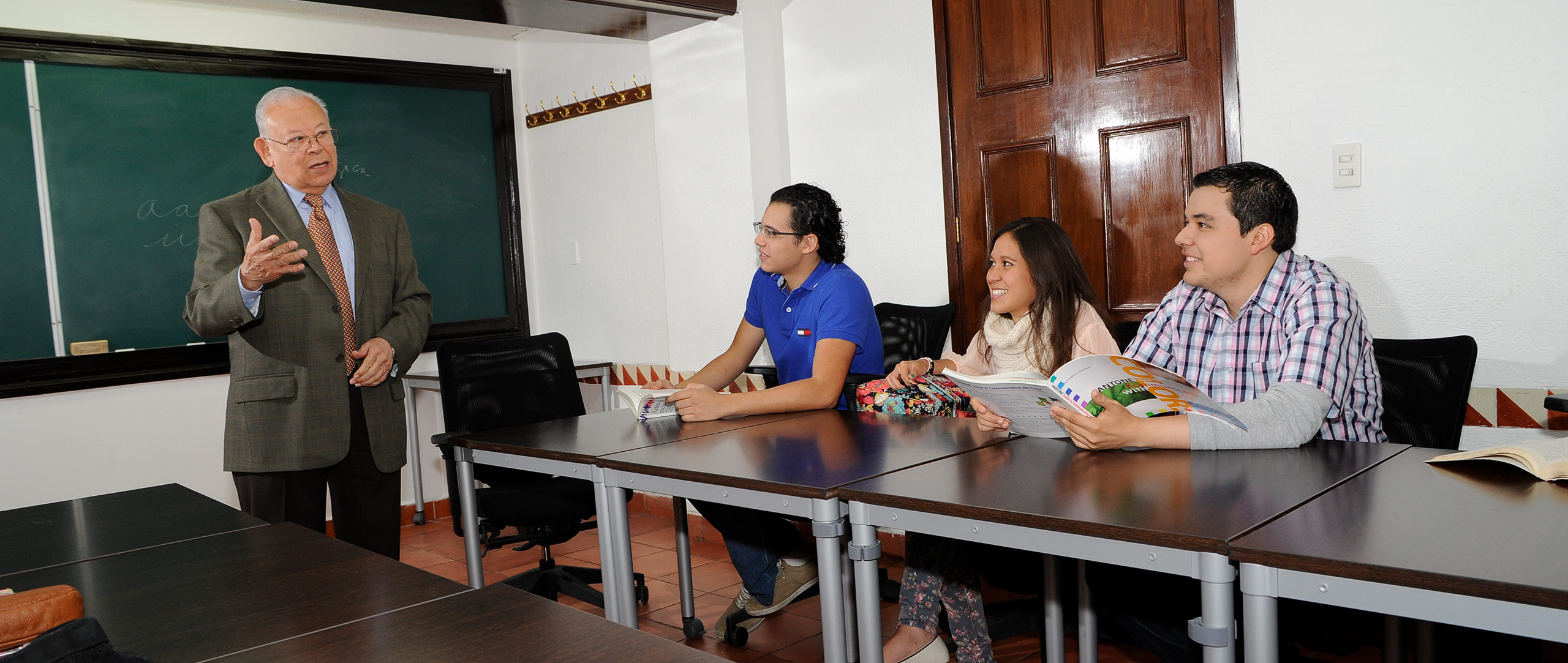
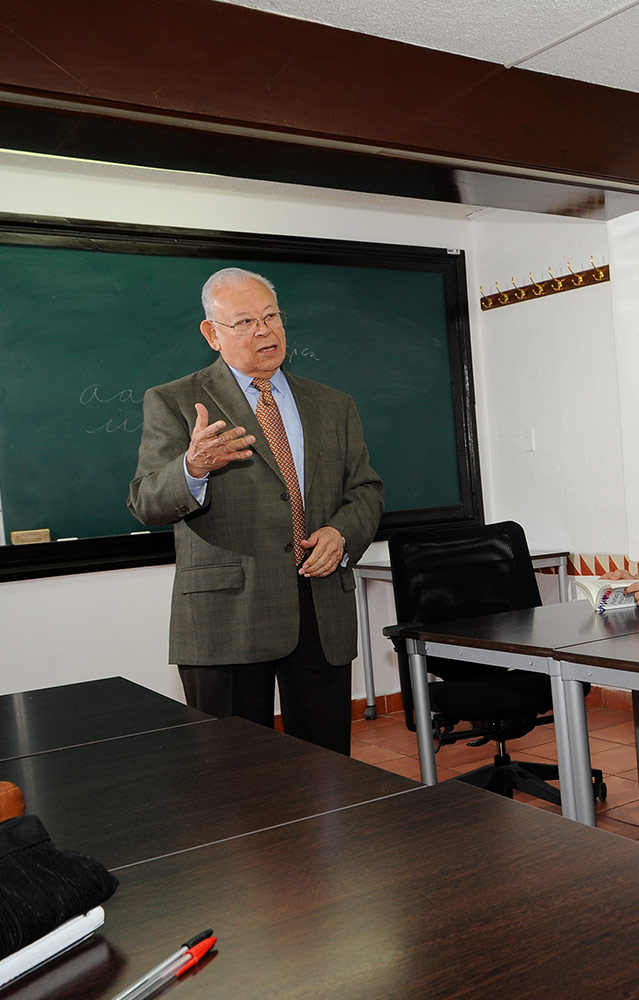
Pedagogy Program
The Bachelor's Degree in Pedagogy prepares experts in training and development who have the tools that allow them to transform any educational reality in the different learning stages of the person and in the different work environments.
The pedagogue of Universidad Panamericana is the expert in educational development that Mexico needs. He leads educational transformation through the development of people.
Main Certifications
This program is accredited by the Comité para la Evaluación de Programas de Pedagogía y Educación A.C. (Committee for the Evaluation of Pedagogy and Education Programs).
RVOE
SEP 20190916 dated 4/25/2019, 2019 plan, school-based modality, Augusto Rodín site.
ENTRY PROFILE
The student teacher is:
- Creative: seeks innovative alternatives
- Intellectually curious: seeks to learn at all times
- Proactive: takes control and anticipates responses
- With a spirit of service: seeks to help others
- Critical: analyzes the surrounding situation in a comprehensive manner.
GRADUATE PROFILE
The graduate of the Bachelor's Degree in Pedagogy will be able to:
- Educationally attend to individual differences and social needs.
- Founding the principles of educational action
- Adapt and implement didactic processes in accordance with the evolutionary stages.
- Use critical, autonomous and reflective thinking through knowledge of pedagogical, developmental and learning theories.
- Diagnose, plan, carry out and evaluate educational processes within a specific context through knowledge of that educational reality.
- Make decisions to solve educational problems assertively.
- Design educational models based on the problematization of reality.
- Generate innovations in different areas of professional work based on their pedagogical identity.
FIRST SEMESTER
- History of Culture
- Pedagogical Theory
- Sociology of education
- Pedagogical Argumentation
- Shaping didactic thinking
- Psychological bases of learning
- Introduction to educational research
- Writing and speaking techniques
SECOND SEMESTER
- Person and society
- General history of education
- Legal framework for education in Mexico
- Quantitative research methodology
- General Didactics
- Learning theories
- Integrated childhood development
- Personality theories
THIRD SEMESTER
- Ethics
- Metaphysics
- Mexican Educational System
- Qualitative research methodology
- Teaching skills workshop
- Educational guidance
- Comprehensive adolescent development
- IOS Laboratory
FOURTH SEMESTER
- Theological Anthropology I
- History of education in Mexico
- Aesthetic education
- Theory of knowledge
- Didactics of lower basic education
- Psychometrics
- Integral development of adults and senior citizens
- Introduction to educational policies
FIFTH SEMESTER
- Theological Anthropology II
- Philosophy of education
- Attraction and selection of human talent
- Didactic exploration laboratory
- Didactics of higher basic education
- Psychometric diagnostic workshop
- Group psychology
- Education policy in Mexico
SIXTH SEMESTER
- Social Philosophy
- Educational guidance in the family
- Training and development of human talent
- Learning assessment laboratory
- Didactics of upper secondary and higher education.
- Neurophysiology of learning
- Entrepreneurs
- Comparative education
SEVENTH SEMESTER
- Man and the Contemporary World
- Project management
- Educational model
- Teacher training and evaluation
- Special education
- Education analytics
- Elective
- Elective
EIGHTH SEMESTER
- Professional ethics
- Platforms for learning
- Curriculum design and evaluation
- Barriers to learning
- Elective
- Elective
- Elective
- Elective
PEDAGOGY ELECTIVES
- Early stimulation
- Labor Law
- Knowledge management and dissemination
- Playful applications for learning
- Social pedagogy
- Direction and management of educational institutions
- Thesis seminar
- Educational intervention in museums
- Quality, evaluation and accreditation
- Hospital pedagogy
BUSINESS ELECTIVES
- Development of management skills and professional practice
- Performance evaluation
- Mexico's political, economic and social environment
- Business creativity
- Corporate governance
ELECTIVES LAW
- Justice and human rights
GOVERNMENT ELECTIVES
- Political sociology
- Decision-making
- Leadership
ESDAI ELECTIVES
- Analysis and design of administrative processes
- Formulation and financial evaluation of projects
Admissions
